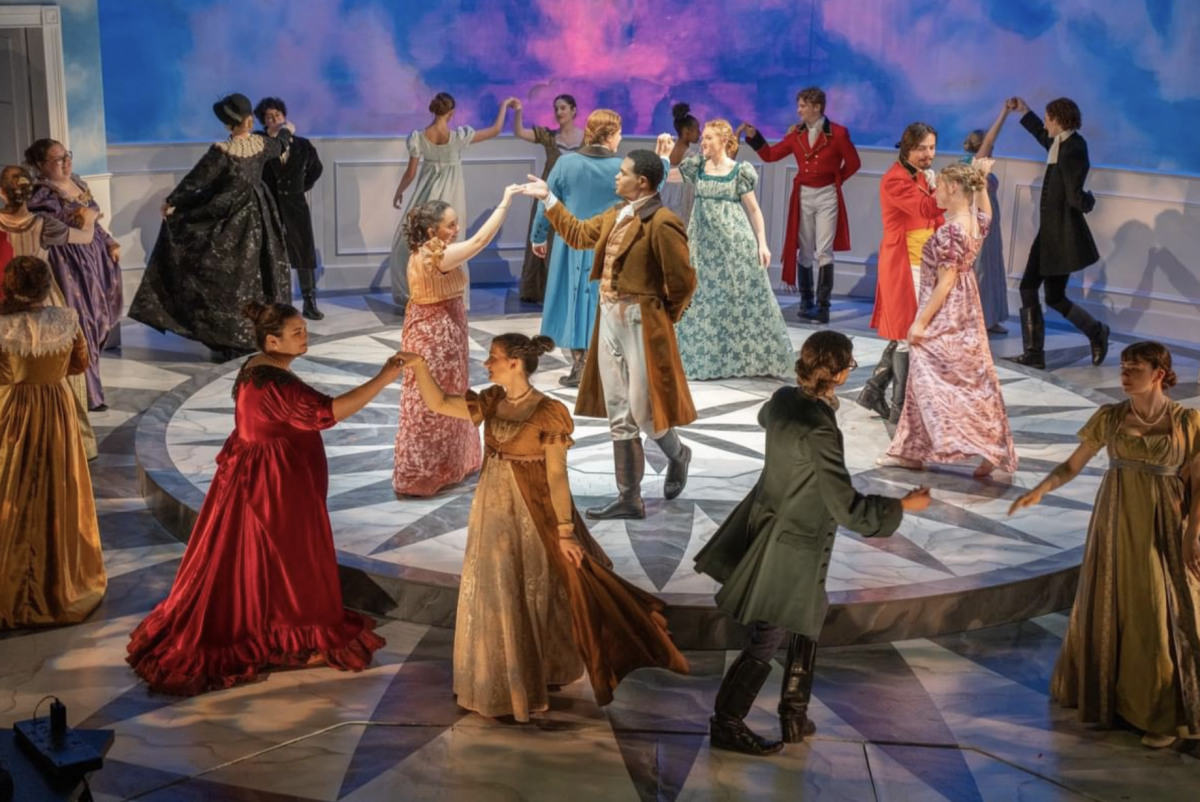It is a truth universally acknowledged that change is inevitable, unless you are one of those lucky people who happens to have a suspiciously antiquated portrait of yourself rotting away in a closet. This of course does little to placate that adorable subset of nerds and conspiracy nuts who convince themselves that broad, hypothetical sociological trends (on the order of big oil, Ryan Adams, or some other hazily conceived malevolent entity) are somehow secretly plotting against their way of life.
The problem with resisting change is that if you do it when it comes to average things, you might be labeled "crazy," which can be a difficult moniker to shed. Once a person refuses a polio vaccine or insists on riding a rickshaw to work instead of taking the bus, it becomes difficult to earn back normal-person status.
The one exception is pop culture. Somehow, it has become perfectly acceptable, and even strangely noble, to complain about the devolution of our shared cultural experiences. Music, books, movies, sports — you can spend your whole life yearning for these things to return to the way they used to be in an era before you were even alive. And the crazy thing is, people won't hate you for it. They may even respect you for refusing to get rid of your eight-track tapes or making obvious, sentimental movies about what life was like in the '50s, especially if you happen to be named Barry Levinson. At worst, you'll be labeled quirky. At best, someone may write a magazine article where you are labeled a "neo-theologian revolutionary," which is the kind of thing that really helps you meet women.
I mention this not to try and make a point about our societal desire for a kind of shared cultural nostalgia, but rather because I am, by my own calculations, the most skeptical person in the world when it comes to change. If given the choice, my social life would look no different today than it did when I was 10 years old. I would go over to my friends' houses, have some juice and watch "Days of Thunder" (as I write this, it occurs to me that this is pretty much what I do today, except the juice is mixed with Fleischmann's). My biggest regret in life is not being alive in 1985, an era when Paul Hogan could open a movie, Bobby Knight found gainful employment despite his propensity for throwing chairs across basketball courts, and it was perfectly acceptable to unironically blast Bon Jovi, The Cure and Journey in your car.
It is with this in mind that I can say that, in retrospect, I was probably not the ideal audience member for "Casino Royale," the new James Bond movie that proudly advertises itself as the reinvention of the world's most charming mass murderer.
I have never been opposed to fixing things that aren't broken, as anybody who has ever seen me attempt basic home repairs can attest to. I do not, however, understand why James Bond needed to be fixed. I've always been under the impression that James Bond was pretty cool in of himself.
The buzzwords being thrown around the MGM lot suggest that Bond needed to become grittier, more real, and, my favorite, "soulful." I can't be sure, but I think my head may have exploded when I heard that one. The whole Bond franchise is built around the fact that the movies — even the best ones — make absolutely no sense. "Casino Royale" director Martin Campbell made a big point of saying that his new movie is designed to take Bond back to his roots. But look at the movies: There has never been a time when James Bond movies were gritty, or even an era when they made sense. People always talk about "Goldfinger" and "From Russia With Love" as paradigms for the Bond movies, and for the most part, they are right: It would not be correct, however, to think that these movies were anything but cartoons. In "Goldfinger," a mobster is put in the back of a car and driven to a car-crusher by a man who kills people with his hat. In "From Russia With Love," elfin madwoman Rosa Klebb has a poison dagger built into her shoe, a feature that is reportedly being incorporated into the LeBron Zoom IV, due out next year.
I took my father with me to see "Casino Royale" over Thanksgiving break. It made sense to take my dad, since he lives in the kind of pop culture vacuum unique to people over the age of 60. He's probably the only person in the world who could enjoy "Casino Royale" strictly on its merits. He wouldn't care that the script was written by Oscar winner and moderately entertaining "Entourage" guest star Paul Haggis, a man who believes any script could be improved by inserting a few scenes where people scream their feelings at one another. He wouldn't care that most people would prefer to have Clive Owen playing Bond, especially since he maintains Timothy Dalton was the best actor ever to take on the role. He probably would care that, for the first time in the history of Bond cinematography, Bond-girl Eva Green doesn't take her top off, but nobody is perfect.
My dad watches movies, listens to music and reads books, but he genuinely has no idea about what he is supposed to like and what he is supposed to hate. A few weeks ago, I wrote a column in which I endeavored to explain why I thought schlock-auteur Tony Scott is one of the best directors in Hollywood. Later in the day, my dad called me and told me he didn't understand the point of my article: "I don't get it — you mean there are actually people who don't like Tony Scott? 'True Romance' is great!"
To say that we did not like "Casino Royale" would be incorrect: More to the point, we were confused by "Casino Royale" and not just because the movie is built around one of those techno-babble plots the Bond movies patented years ago (ironically, the needlessly complicated plotting is the one Bond trademark this movie would have been well-served to get rid of, yet Haggis and Campbell embrace it with aplomb). Instead, we were confused because we did not understand what this movie was supposed to be.
That is the dirty little secret about "Casino Royale": It is not a James Bond movie. It is a movie that features a British assassin named James Bond, but he has nothing to do with the character of the same name played by Sean Connery, George Lazenby, Roger Moore, Timothy Dalton or Pierce Brosnan. Daniel Craig's Bond doesn't get to do any of the things these other actors got to do. While past Bonds have gotten to go off and have exotic adventures, Craig is frolicking around in the Caribbean Sea wearing a disturbing little mankini. (I am hoping for an outtake on the DVD where Craig asks, "Do these cutoffs effectively hide my thunder?") Past Bonds have gotten to square off against colorful villains with amazing secret lairs — "Casino Royale"'s villain is a compulsive gambler named Le Chiffre, played by a lisping Dane named Mads Mikkelsen who was apparently hired after the producers decided an 11-year-old girl would be too menacing. Eva Green is suitably foxy as Bond girl Vesper Lynn, but when paired with Craig — who seems to think he is playing Hamlet — sparks do not exactly fly.
Craig doesn't get any gadgets, which for whatever reason is a source of pride for the people who made this movie. Apparently, they feel this does the job of making Bond "gritty," although a more accurate descriptive adjective would probably be "lame." How do you make a James Bond movie without gadgets?
The answer to this question, of course, is that you don't make a James Bond movie without any gadgets. You make a movie like "Casino Royale," which is a James Bond movie to the extent that Kim Novak's character was the same person as Jimmy Stewart's wife in "Vertigo." Daniel Craig might as well be playing a spy named Nigel Hildebrand.
Based on the way the movie performed during its first two weeks, it looks like people have embraced the changes made to the franchise. People I've talked to have used words like "fresh" and "exciting" to describe their reaction to the movie. I nod and stare, and quietly wonder where I can get some eight-track tapes. Things may be changing, but that doesn't mean I have to go along with it.
Ray Gustini is a sophomore majoring in English and journalism. Are you with Rocky Balboa or against him? Let Ray know at [email protected].







